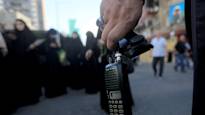Israel’s attacks on Hizbollah’s communications equipment have heated up the debate about whether it was terrorism. If it was, then should we talk about state terrorism, because the perpetrator of the attacks is Israel?
Academician and Emeritus Professor of International Law Martti Koskenniemi points out that there is no legal definition of state terrorism.
Thinking about it is rather political and foreign policy talk, Martti Koskenniemi estimates.
State terrorism usually means that the state or a state actor oppresses, subjugates or eliminates persons or groups of people.
However, Koskenniemi points out one thing right away.
– The attacks in Lebanon pale in comparison to what Israel is doing in Gaza. It’s probably genocide.
Recklessness is a sign of a war crime
Martti Koskenniemi interprets Israel’s actions purely in the light of international agreements. They prohibit terrorizing the civilian population.
– Terrorizing civilians is a matter of war crimes and crimes against humanity.
Koskenniemi points out that the basic principle of the Geneva agreement is the prohibition of indiscriminate attacks separately. He considers that Israel’s attacks in Lebanon violate the Geneva Convention precisely because of their recklessness.
– You can’t know whose phone or paging device will be hit in the end. They are all over public and private space, that’s why civilians have died.
Koskenniemi reminds that Israel is also involved in the convention on the prohibition of conventional weapons, which prohibits the placement of booby traps in a space where bystanders can be harmed.
According to him, Israel violated many clear rules of warfare in the attack of the device explosions in Lebanon. According to Koskenniemi, legally speaking, the attack was a crime, but the political side is more vague and open to interpretation.
– I don’t know whether it is necessary to make a political conclusion that Israel is a terrorist state.
If the definition of state terrorism is vague, then it is also not easy to interpret what terrorism is in general. In the case of Israel and Hezbollah, the disparity created by the parties’ military power and international status increases the difficulty in interpreting the events.
Martti Koskenniemi says that lawyers do not have the right to keep to themselves how they talk about terrorism. He has noticed that strong terms are used, especially in the media, because talking about terrorism appeals to emotions.
It can attract the attention of the audience.
– I have to keep a cool head myself and see what the contracts say. Murder is murder. In a way, that’s enough for yourself to solve that issue.
Operating in the gray zone
The lawyer’s way of looking at events that can be interpreted as terrorism has long since been left behind. The use of language has changed especially after the terrorist attacks in the United States in September 2011.
Emeritus Professor Koskenniemi says that the United States started to create a gray zone after that, which was located in the middle ground between actual criminal justice and police activities and warfare.
– The United States was looking for political opponents around the world, who were called terrorists. They and their close circle were then killed.
It has been obscured that the legal rules of war structure the activities that take place during the war. Peacetime activities are concerned with criminal law and police activities. When the legal world is clouded, strong states and actors win.
– Those who have resources and technical tools and who want to do what they want will benefit.
Will search devices explode elsewhere soon?
Desire, resources and technical ability have been combined to the greatest extent precisely in Israel’s activities. The war in Gaza has resulted in the Israeli political and military leadership being charged with war crimes and genocide.
Recent events in Lebanon can be interpreted in a way that the Israeli leadership no longer cares about the legal side, because they are already being accused according to the heaviest, says Koskenniemi.
– It seems that Israel’s political and military leadership does not care about it.
Martti Koskenniemi reminds us of the most recent indictment, in which the International Court of Justice in The Hague found that Israel’s occupation of the West Bank is illegal.
– In a way, Israel’s entire relationship with the Arab world is based on illegal activity. It is an extremely unpleasant and tragic situation for Israel.
Israel is the strongest country in the region, and it has created a situation where it can do anything.
Martti Koskenniemi thinks it is worrying if Israel succeeds in this and is able to create a situation where no norms apply to it.
This can lead to other strong actors following behind and thinking that if the norms don’t apply to Israel, they don’t apply to us either, says Koskenniemi.
– If communication devices can be blown up in the Middle East, they can be blown up elsewhere too.
